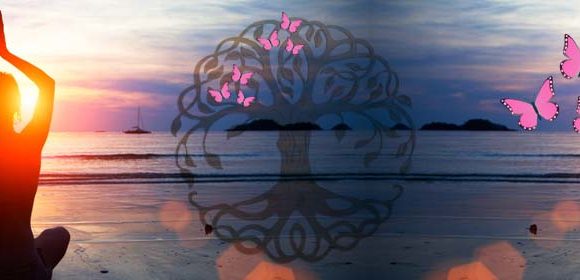In today’s world, it often feels like people are more divided and intolerant of each other than ever before. Whether it’s in political discourse, social media arguments, or cultural conflicts, there seems to be an increasing lack of understanding and empathy between individuals and groups. Many wonder what has sparked this greater divide in humanity, especially when comparing the present to the past, say, 100 years ago.
From a spiritual perspective, this growing intolerance may be the result of deeper disconnection—from ourselves, from others, and from the divine. This article explores why people seem more intolerant today, what has changed in recent history, and how we can address this divide through spiritual principles.
Introduction: A World in Conflict
It’s no secret that human beings have always experienced conflicts. From wars and political revolutions to cultural clashes, divisions have existed throughout history. However, many people feel that the current state of humanity is different, marked by an unprecedented level of polarization and hostility.
Whether it’s debates over politics, identity, religion, or values, there’s a sense that people are increasingly unwilling to listen to or engage with those who hold different opinions. Social media has amplified these divisions, allowing disagreements to escalate into toxic, dehumanizing rhetoric. The question is, what’s changed? Why does it feel like humanity is drifting further apart rather than coming together?
Section 1: The Rise of Individualism and Disconnection
One major factor contributing to today’s heightened intolerance is the rise of individualism. Over the past century, societies—especially in the West—have become increasingly focused on the individual rather than the collective. While individualism has brought many positive developments, such as personal freedom and self-expression, it has also led to a weakening of the communal bonds that traditionally held societies together.
In earlier times, communities were often united by shared values, religious beliefs, or cultural practices. These shared experiences created a sense of belonging and mutual understanding. Today, however, people are more isolated, both physically and emotionally. This disconnection fosters a sense of “us vs. them” thinking, where individuals are more likely to see those with different perspectives as threats rather than fellow human beings.
From a spiritual perspective, this trend reflects a loss of connection to the deeper truth that all beings are interconnected. Many spiritual traditions teach that we are not separate from one another but part of a greater whole. For example, in Christianity, the concept of loving your neighbour as yourself (Mark 12:31) is rooted in the idea that all humans are connected through divine love. Similarly, in Hinduism, the principle of *Ahimsa* emphasizes nonviolence and compassion toward all living beings, recognizing the interconnectedness of life.
When we lose this sense of connection, it becomes easier to dismiss or demonize those who are different from us. Without a spiritual grounding in the idea of unity, we become more vulnerable to intolerance and division.
Section 2: The Role of Technology and Social Media
Another significant factor contributing to today’s intolerance is the rise of technology and social media. While the internet has made it easier than ever to connect with people across the globe, it has also created echo chambers where individuals are exposed primarily to ideas and opinions that reinforce their existing beliefs. This can create a distorted view of reality, where those who disagree are seen as not just wrong but morally inferior.
Moreover, social media often encourages quick, reactionary responses rather than thoughtful, compassionate dialogue. Instead of engaging in meaningful discussions, people are more likely to resort to insults, accusations, or canceling those with whom they disagree. The speed and anonymity of online interactions make it easier to dehumanize others, further deepening divisions.
From a spiritual viewpoint, the rise of social media and technology can be seen as a reflection of the ego’s need for validation and superiority. In many spiritual traditions, the ego is considered the part of us that seeks separation and dominance over others. The ego thrives on conflict and division because it reinforces the illusion of separateness.
In Buddhism, the ego is often associated with suffering, as it keeps us trapped in a cycle of desire and aversion. By contrast, spiritual practices such as meditation and mindfulness help us transcend the ego and recognize the inherent unity of all beings. When we are connected to our higher selves, we are less likely to engage in hostile or divisive behaviour because we see others as reflections of ourselves.
Section 3: A Lack of Spiritual Anchoring in Modern Society
Finally, the growing intolerance in society may also be linked to a decline in spiritual and moral grounding. In previous generations, many people found meaning and purpose through religious or spiritual practices that emphasized compassion, forgiveness, and humility. Today, however, many have turned away from traditional spiritual teachings, leaving a moral and spiritual vacuum that has been filled by materialism, consumerism, and ego-driven pursuits.
Without a spiritual foundation, people may struggle to find common ground with others. They may become more focused on external success or validation rather than cultivating inner virtues such as kindness, patience, and understanding. This spiritual disconnection can lead to a hardening of the heart, making it more difficult to empathize with those who are different from us.
For example, in Christianity, the teachings of Jesus emphasize the importance of loving one’s enemies and praying for those who persecute us (Matthew 5:44). These teachings challenge us to go beyond our ego-driven need to be right or to win arguments and instead approach others with love and compassion, even when we disagree.
Conclusion: Healing the Divide Through Spiritual Awareness
The growing intolerance in today’s world is not just a social or political problem—it’s a spiritual one. As we become more disconnected from ourselves, each other, and the divine, it becomes easier to fall into patterns of division and hostility.
The solution, then, is not simply to change laws or policies, but to cultivate a deeper sense of spiritual awareness and connection. By recognizing the divine spark in ourselves and others, we can begin to heal the divides that have separated humanity. Through practices such as meditation, prayer, and acts of compassion, we can move beyond the illusion of separateness and embrace the truth that we are all part of the same human family.








